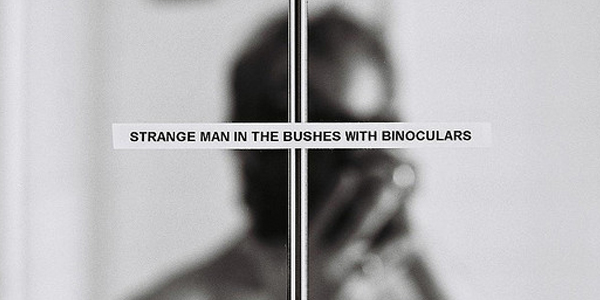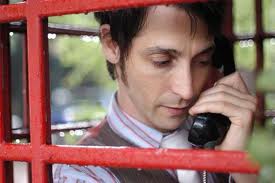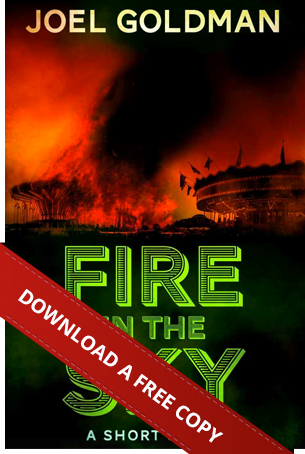
I’ve written before about sex and violence in crime fiction, but this post isn’t about that…exactly. This time I want to write about how you can spot any number of “crimes” and “sexual indiscretions” by simply observing the happenings around you and in your community. If you take note of what you witness (i.e. write them in a journal or dictate them on your smart phone recorder), you can embellish upon what may have been a titillating transgression or merely an innocent exchange. Watch with eyes wide open and then transform these ambiguous encounters into fantastic material for a novel. Write like a thief who steals from real-life.
The Power of Mindful Observation
I like to write about what people do when they think no one is watching and what happens as a result. Remember in the movie, Disturbia, when Kale is confined to his house by his ankle bracelet? Out of pure boredom, he begins to observe the happenings in his neighborhood much more closely than he would have otherwise.
He sees that the man across the street from him is carrying on an affair with the cleaning lady – bringing her flowers and ravishing her in an upstairs bedroom just after his wife leaves for her tennis lesson. He watches his attractive new teen neighbor do her yoga routines and swim laps in the pool. He sees the little boys across the yard in their room ordering “adult” flicks on their television unbeknownst to mom. Finally, he begins to suspect that he may be living right next door to a serial killer. Kale gleans all of this information from taking the time to observe the everyday events around him.
How to Turn Your Observations into Great Fiction
So you’ve watched and recorded numerous happenings and events in your community and as you go about your daily errands. You’ve got a collection of everything – from the mundane to the truly bizarre. How do you make these micro-stories become rich material for your novel?
Instead of sitting down at your laptop or writing desk and typing “Chapter One” in big, bold, intimidating letters, why not let the story come to you? Although you’ve carefully observed the activities of the strangers you’ve encountered, you’ve really let them find you rather than actively seeking out characters about whom to write. Attempt to write the same way—let the fiction find you. Turn off your censor and let your imagination run wild.
Use your notes as writing prompts and see what story your mind delivers to you. Say you’ve stalked an interesting looking woman at the drugstore with a shopping list. You happened to see what she had in her cart: matches, Benadryl, twine, Vaseline, maybe razors, or bandages (is someone tied up—or are they about to be?).
 Perhaps you watched a lanky young man gesturing emphatically as he talks on a phone inside a phone booth—take a stab at composing one side of a suspicious conversation. Or maybe you’ve witnessed an elderly couple eating dinner and not speaking a word—try your hand at guessing what they’d really like to be saying to one another. Perhaps the wife is planning to put arsenic in his meatloaf the following night; or maybe she’s dreaming of her buff, much younger lover.
Perhaps you watched a lanky young man gesturing emphatically as he talks on a phone inside a phone booth—take a stab at composing one side of a suspicious conversation. Or maybe you’ve witnessed an elderly couple eating dinner and not speaking a word—try your hand at guessing what they’d really like to be saying to one another. Perhaps the wife is planning to put arsenic in his meatloaf the following night; or maybe she’s dreaming of her buff, much younger lover.
Or, maybe after watching your neighbor across the street as he sits on his front porch, you notice that he makes a phone call every evening at the exact same time. He covers his lips and flits his eyes back and forth as he talks. Could he be planning some type of clandestine operation? A murder? A heist?
When you write this way, each sentence grows out of the sentence that precedes it. It will help your writing, and your plot, flow much more naturally and may even excite you a little more than when you just try to conjure up ideas on your own. Not only will it help your writing and creativity, you’ll begin to get a kick out of seeing what people do when they think no one is watching.
What have you observed others doing when they think they’re all alone? Share it with me.
Images credits: Charlie Brewer, morguefile [dot] com












Joel,
This is great. I don’t plan to wright or compete with you. I was wondering when we might expect more Lou mason and Jack davis. I have read the all and think they are the best of the mysteries. Move over John gresham and James patterson.
Hi Gary,
Thank you for your kind words and for taking the time to share your thoughts. I’m not sure what the future holds for Lou Mason and Jack Davis, but I can’t imagine that they won’t come around again at some point. 😉 I’m so pleased that you enjoyed them. Have you read my latest, Stone Cold?